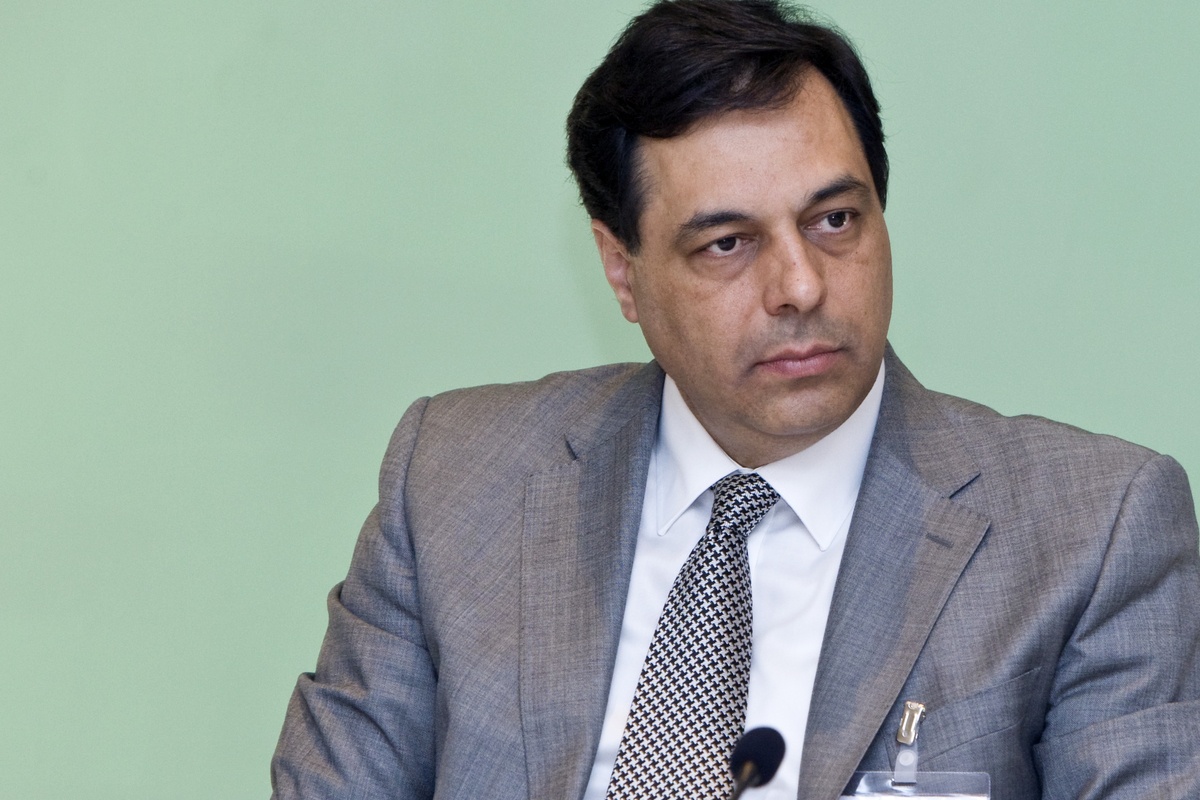BEIRUT: Former Education Minister Hassan Diab was tasked this Thursday with forming the next Lebanese government, with the support of 69 MPs, including affiliates of Hezbollah, the Amal Movement, the Free Patriotic Movement and their allies.
“I call on the Lebanese people in all squares and all areas to be partners in a workshop of reform,” Diab said, during prepared remarks read at the presidential palace in Baabda addressing protesters who have been in the streets for 64 consecutive days.
Diab had emerged as a strong candidate on Wednesday night after caretaker Prime Minister Saad Hariri stepped aside following weeks of horse-trading over who would be the next premier.
60-year-old Diab is a professor and vice president of computer engineering at the American University of Beirut. He has been designated 51 days after Hariri resigned amidst massive street protests against the ruling elite.
Diab was named by the blocs of Hezbollah, the Amal Movement, the Free Patriotic Movement, the Marada Movement, a group of 5 Sunni MPs known as the “Consultative Gathering”, the Syrian Socialist Nationalist Party, Deputy Parliament Speaker Elie Ferzli and MP Jamil Sayyed.
There were 42 abstentions, including from the Future Movement, Lebanese Forces, former prime ministers Najib Mikati and Tammam Salam, and MPs Fouad Makhzoumi, Osama Saad, Chamel Roukoz and Neemat Frem.
Nawaf Salam, a judge on the International Court of Justice, received 13 votes from the Progressive Socialist Party, the Kataeb Party and MPs Michel Mouawad and Neemat Frem.
Kataeb Party leader Sami Gemmayel said that his party had chosen Nawaf Salam due to his supposed popularity among street protesters and his ability to steer Lebanon through the deepening economic and financial crisis in the country.
Independent MP Paula Yacoubian was the only MP to vote for political activist and professor Halime el-Kaakour.
Yacoubian said that Diab had been “pulled out like a rabbit from a hat” and was from the same ilk as the ruling class. Therefore, Yacoubian didn’t expect different results.
Diab’s selection launches a period of government formation that will likely see divides between parties that formed the former March 8 and March 14 alliances. Future, the LF and the PSP have said that they will not be participating in the next government.
This means that Diab will have to form a government consisting of representatives of Hezbollah, Amal and the FPM, i.e, the former March 8 alliance.
Following his designation, hundreds of protesters took to the streets in parts of the country including Tripoli and Beirut.
Security forces had deployed in large numbers around Diab’s Beirut home as the consultations were held Thursday, though few protesters actually turned out there.
On social media, many also ridiculed Diab’s boastful 136-page CV, which is fit with inspirational quotes and includes a map of the world noting all the countries he has visited: 150 cities in 75 nations.
The CV comprises a “My Story” section which includes the lines: “I have been a seeker of truth since my early days. Always intrigued, always inquisitive. In a very strange clairvoyant way, I always felt since my early school years that I would be successful in whatever I aspire for.”
There have also been allegations of misconduct from one of his former colleagues at AUB.
Humam Kadara, a former cancer researcher at AUB, said Diab had pressured him to employ his son, and offered to pay Kadara the salary his son earned if he agreed to do so.
“He told me word-for-word: If you want to be happy, do this service for me,’” Kadara said in a post on Facebook.
Beirut Today could not reach Diab for comment.
The open-ended last line of the “My Story” section in Diab’s CV seems fitting for the uncertain path Lebanon is now on: “The story goes on…”


